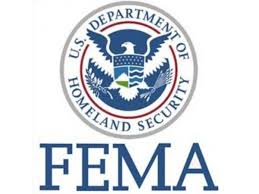 AUSTIN, Texas — Everyone should be prepared for a disaster with a pre-packed emergency kit, full family communication plan and carefully mapped evacuation routes. People who have access and functional needs or disabilities, however, need to take additional steps to ensure they are ready for the unexpected.
AUSTIN, Texas — Everyone should be prepared for a disaster with a pre-packed emergency kit, full family communication plan and carefully mapped evacuation routes. People who have access and functional needs or disabilities, however, need to take additional steps to ensure they are ready for the unexpected.
Medical services and pharmacies may be unreachable or closed for several days after a disaster, so it’s crucial to consider the resources you use regularly and determine what to do if those resources are limited or unavailable. Follow the steps below to get started and visit www.ready.gov/individuals-access-functional-needs.
Prepare your support network: Write out a list of people who can assist you — such as family members, friends, neighbors, medical service providers, and community and faith-based groups — and keep the list in a watertight container in your emergency kit. Tell a few people where to find your supplies, and give at least one trusted person a key to your home.
Pack an emergency kit: In addition to typical items (see www.ready.gov/build-a-kit), your kit should include medications, a list of your medical service providers and your insurance information. Also include your medical equipment and batteries as well as a list of their model numbers, in case they need to be replaced. If you use a power wheelchair, keep a lightweight manual chair as a backup. If you have difficulty hearing, consider purchasing a weather radio with text display and a flashing alert.
Care for your service animal’s needs: In your emergency kit, include documentation of your need for a service animal as well as their veterinary records, medications and at least a three-day supply of food and water. Also remember this may be a stressful time for the animal, so consider bringing familiar items such as treats, toys, bedding or an anti-anxiety shirt. For more tips on caring for animals in a disaster, go to www.ready.gov/animals.
Plan for power outages and closed facilities: If you use medical equipment that requires electricity, talk to your health care provider about what to do in an outage. If you depend on dialysis or other life-sustaining treatment, know the location of more than one facility.
Identify accessible transportation options: Contact local services, public and private transportation providers and paratransit organizations to learn about accessible evacuation methods and to see if you can pre-register.
Contact your local government: Many local agencies keep lists of people with access and functional needs so they can provide quick assistance in a sudden emergency.
For more information on Hurricane Harvey and Texas recovery, visit the FEMA Hurricane Harvey disaster web page at www.fema.gov/disaster/4332, the FEMA Harvey Facebook page at www.facebook.com/FEMAharvey, the FEMA Region 6 Twitter account at twitter.com/FEMARegion6 or the Texas Division of Emergency Management website at www.dps.texas.gov/dem/.

